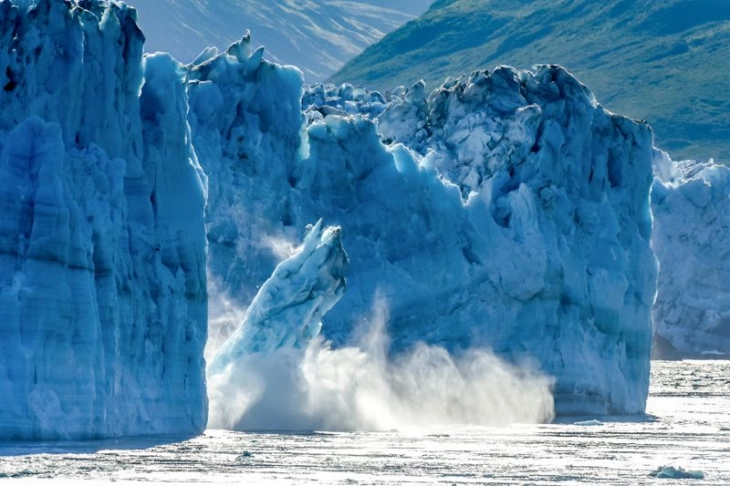Over the past ten years, the World Meteorological Organisation (WMO) has highlighted unprecedented heat records, with polar and mountain ice melting and sea levels rising at an accelerated pace compared to the 20th century.
Glacial thinning has reached an unprecedented rate of one meter per year, and the Antarctic continental ice sheet has experienced a nearly 75% increase in ice loss from 2011-2020 compared to the previous decade.
This trend poses significant challenges, reducing freshwater availability for millions while threatening low-lying coastal regions with increased inundation from rising tides.
Despite a brief dip in global greenhouse gas emissions during the Covid pandemic, their levels continue to climb, resulting in each successive decade being hotter than the last since the 1990s, as reported by the WMO.
The WMO’s analysis indicates that between 2011 and 2020, the average global temperature exceeded pre-industrial levels by 1.1 degrees Celsius. The years 2016 and 2020 stood out as the hottest of the decade, with the six warmest years recorded between 2015 and 2020.
Secretary-General Professor Petteri Taalas emphasized an alarming trend: warming escalating with each passing decade, with no sign of immediate reversal. Record high temperatures have been reported by more countries, while ocean warming accelerates and sea level rise nearly doubles within a single generation.
The Arctic is particularly affected, heating faster than any other region due to the Albedo effect, where dark oceans absorb solar energy instead of reflecting it back into space off white sea ice.
The Greenland ice sheet’s melting has contributed to an annual sea level rise of 4.5mm in the last decade, a significant increase from the 2.9mm yearly rise between 2001-2010.
There’s some positive news: the ozone hole above the Antarctic has reduced compared to previous decades, and advancements in disaster warning systems have resulted in fewer casualties.
However, the urgent need to address climate change remains critical. Nations gathering at the UN’s COP28 climate talks in Dubai have pledged to limit the global temperature rise to 1.5 degrees Celsius above pre-industrial levels.
Recent provisional data from the WMO indicates that 2023 is likely to be the hottest year on record. Scientists are advocating for swift action, urging governments worldwide to commit to a rapid reduction in fossil fuel usage.
Professor Taalas emphasized the imperative to cut greenhouse gas emissions as the foremost priority, highlighting the increasingly extreme weather events impacting socio-economic development. Heatwaves, floods, droughts, wildfires, and tropical cyclones damage infrastructure, agriculture, water supplies, and result in mass displacements, with studies showing a significant increase in the risk of intense heat over the past decade.






Comments are closed for this post.